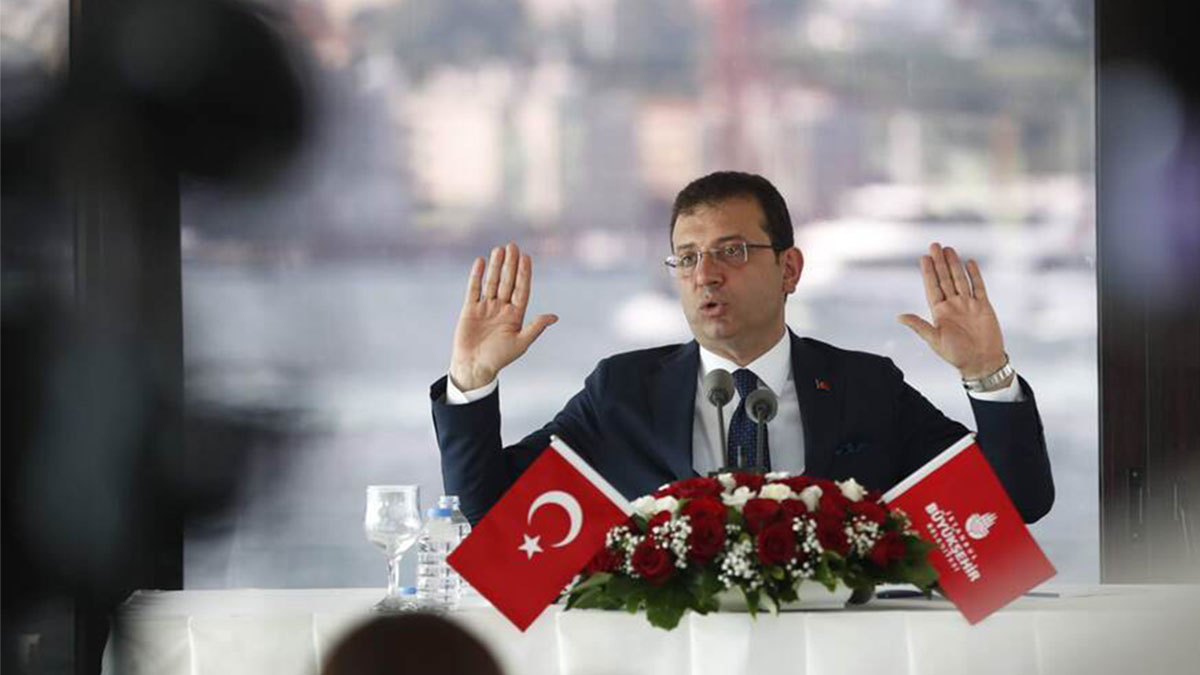In another sign of escalating standoff with opposition and shrinking space for dissent in Turkey, authorities there have imposed a ban on using images, sound recordings of jailed Istanbul Mayor Ekrem Imamoglu and dozens of municipality staff members who were detained earlier.
Istanbul prosecutor’s office made the announcement, banning all visual depictions of the key opposition figure and potential presidential contender.
Meanwhile, local media reported that police detained 44 people in the latest round of raids as part of a graft investigation.
The development has raised concerns over Erdogan’s relentless assault on Turkey’s democracy even as supporters of Imamoglu hold protests nationwide. Just days back, Imamoglu’s opposition Republican People’s Party or CHP held a massive rally in Istanbul, pressing Erdogan for the mayor’s release. They also view the ongoing probe against him as politically motivated.
Imamoglu was detained in March on corruption charges that he has vehemently denied. The CHP has accused Erdogan of using the judiciary to prevent the mayor from running in the presidential polls. On the other hand, the president has accused the CHP of “doing everything to disturb the public peace, to polarise the nation.”
Notably, Imamoglu is the frontrunner for CHP’s nomination, but his candidacy took a hit after Istanbul University annulled his diploma in March this year, citing alleged irregularities with Council of Higher Education regulations. Under the Turkish Constitution, a presidential candidate must hold a higher education degree.
Impact Shorts
More ShortsImamoglu alleged the university’s decision was “illegal”.
Now, the latest move to ban depictions of the Istanbul mayor has intensified confrontations between the ruling and opposition factions.
The deepening political crisis and suppression of democratic rights have cast a gloomy shadow over financial markets as well.
Since Imamoglu’s arrest and ensuing protests, the Turkish lira has come under great pressure.
Turkish authorities had to raise interest rates and spend around $50 billion in foreign reserves to keep the currency stabilised.
Does Erdogan want to further extend his rule?
There are concerns that Erdogan might be looking for ways to alter the country’s constitution so that he can hold on to power even after his term ends in three years.
Erdogan first led the country as prime minister from 2003 and was elected president in 2014. However, he can’t run for elections again unless rules are changed.
Erdogan has denied allegations that he wants to change the constitution to extend his rule, saying he was “not interested” in being re-elected.
“We want the new constitution not for ourselves, but for our country. I have no interest in being re-elected or running for office again,” he told reporters earlier this week.


)

)
)
)
)
)
)
)
)



